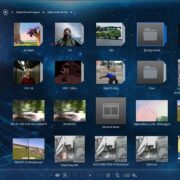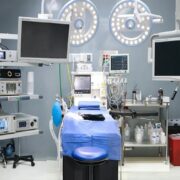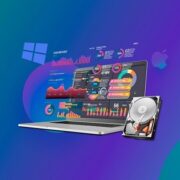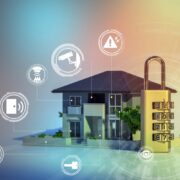Nursing is an essential and long-established profession, but it has changed radically over the decades. In the next few years, more changes will undoubtedly occur that will make nursing even more complex and multifaceted. 150 years ago, nurses were little more than personal assistants to doctors and physicians. Today, they are highly educated, independent medical practitioners in their own right, working as part of a skilled team to deliver high-quality healthcare to patients in an information-intensive, high-tech environment.
A well-documented shortage of qualified nursing practitioners means that good nurses are more in demand than ever. The nurses of tomorrow not only need to acquire an education equal to those experienced professionals approaching retirement age, but also need to be able to meet new challenges regarding changing expectations of patient care, new technology, updated working practices and more.
Here are five developments that are set to transform nursing in the coming months and years.
Table of Contents
Telehealth
Telehealth, or telemedicine, involves the use of modern technology to perform remote diagnoses, consultations and treatment where this is the most efficient, cost-effective and affordable option for patients, physicians and nurses alike. This was already a growing trend when its adoption was massively accelerated by the COVID-19 pandemic. For nurses, using telemedicine software provides a wider range of opportunities for educating patients and service users, gathering health-related information and performing preliminary assessments to determine the type and urgency of treatment required.
Telehealth can be used on its own or as part of a hybrid model of virtual and in-person care. For patients, it gives them greater access and agency, allowing them to feel more in control of their own healthcare and to access services from the safety and security of their own homes. While telehealth may result in some nursing tasks being automated, this only frees up nurses to concentrate on other, more demanding tasks, while using telemedicine tools to provide better and more patient-focused care.
Online nursing programs
As mentioned above, there is currently an unprecedented demand for nursing practitioners, especially advanced practice nurses with high-level qualifications. Online programs from major universities and accredited establishments make higher education more accessible. Working nurses can study part-time to improve their professional development and career prospects by gaining new skills and knowledge.
An online MSN-AGPCNP program at the University of Indianapolis can be completed in just eight semesters or 32 months, and includes a clinical placement to provide invaluable hands-on experience. Acquiring a Master of Science in Nursing as an Adult-Gerontology Primary Care Nurse Practitioner (MSN-AGPCNP) will allow registered nurses to specialize in the growing field of care for an aging population.
Increased specialization
Thanks to the growing complexity of healthcare, specialized nurses are in high demand. There are now nearly 100 different fields for nurses to specialize in. While general nursing practitioners are always needed, nursing roles increasingly require specializations such as nurse anesthetist, geriatric nursing, midwifery, orthopedic nursing or pediatric nursing.
By becoming qualified in a nursing specialty, nurses can increase their employability as well as the number of career paths open to them. Specialist advanced practice nurses can also command higher salaries and often work independently alongside physicians and other high-level healthcare professionals.
Nursing informatics
Hospitals in the US and elsewhere are required to keep electronic medical records (EMRs) that include patients’ profiles, histories and more. For these to be used effectively, hospitals and other medical facilities need to have staff that can read, interpret and manage this data. This role calls for specialist training. Nursing informatics combines on-the-ground nursing with EMR management and record keeping and is one of the fastest growing fields in modern nursing.
Genetics nursing
Although genetics and genomic nursing has been in existence since the 1980s, it has gathered more momentum in recent years as scientific breakthroughs have enabled more accurate and life-saving diagnoses and treatments based on genetic information. Genetic nurses look at inherited traits and their variations, with genomics focusing on the comparison and analysis of genomes and how genes interact with each other.
By examining patient DNA, genetic nurses can get a clearer picture of a patient’s overall health and can create a risk profile, particularly considering inherited vulnerabilities and tendencies. Common illnesses such as cancer, diabetes, Alzheimer’s and heart disease are closely linked to our genes and, if they can be predicted, then early treatment is the most effective way of stopping them or of reducing their impact. Genetic testing is also very effective in diagnosing rare diseases and providing targeted treatment.
The next generation of nurses will work alongside the very latest technology to provide the best possible outcomes for patients at an affordable cost. By being constantly adaptable, the role of nursing will continue to evolve, providing the highest quality of care for decades to come.





















Comments